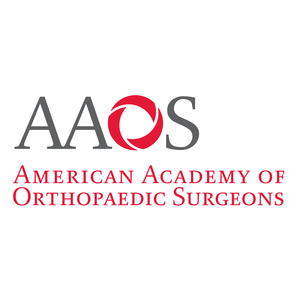Steroid injections administered too close to hip, knee replacement surgery may increase infection risk
ORLANDO, Fla., March 2, 2016 /PRNewswire-USNewswire/ -- Injections received in the months prior to total knee (TKR) or total hip replacement (THR) surgery may increase the risk for infection and related complications, according to two studies—among the largest conducted on this topic—presented at the 2016 Annual Meeting of the American Academy of Orthopaedic Surgeons (AAOS).
Hip and knee injections frequently are prescribed to alleviate pain and inflammation in patients with osteoarthritis. Most injections contain corticosteroids to suppress pain and inflammation, but these drugs also suppress the body's immune system. Patients with suppressed immune systems have higher risks of severe, post-operative infections that are difficult to control, and can result in additional surgery, prolonged antibiotic use, and even death.
In "Preoperative Hip Injections Increase the Rate of Periprosthetic Infection after Total Hip Arthroplasty," researchers reviewed data from 177,762 patients in the Statewide Ambulatory Surgery and Inpatient Database, for Florida and California, from 2005 to 2012.
The study attributed injections within three months of THR to a 40 percent increased risk for post-operative infection. The infection rate after one year was 2.06 percent in patients who did not receive an injection, but that rate increased to 2.81 percent in patients who had an injection within three months prior to their procedures. The study is the first to provide strong evidence of increased risk of an infection when an injection is administered within 12 weeks before THR. Injections appeared safe (.87 percent rate of infection) if performed more than three months pre-operatively.
"This data allows patients and surgeons to have a candid discussion about the risk of infection after total hip arthroplasty if a hip injection has been given in the prior three months," said William Schairer, MD, orthopaedic surgeon at the Hospital for Special Surgery and lead study author. The study cautions patients and surgeons about the administration of cortisone injections within three months of elective hip replacement surgery.
In the second study, "Do Injections Increase the Risk of Infection Following Total Knee Arthroplasty?", researchers identified 83,684 patients in the Humana, Inc. database who underwent TKR for the first time (mean age 65-69) between 2007 and 2014.
Of the patients in this study, 29,603 (35.4 percent) had an injection at least one year prior to TKR and 54,081 did not.
The rates of surgical site infection were significantly higher in patients with an injection prior to TKR than those without (4.4 percent versus 3.6 percent), as were the rates of infection requiring a return to the operating room (1.5 percent versus 1 percent). The rate of infection requiring a return to the operating room remained significantly higher for the patients receiving injections in the months prior to surgery, with an odds ratio (OR) of 1.8 for an injection within one month of surgery, and an OR of 1.4 for an injection seven months prior to TKR.
"We would recommend being selective when indicating patients for injection, and limiting use of injections to people unlikely to undergo knee replacement in the near future," said lead study author Nicholas Bedard, MD, an orthopaedic surgeon at the University of Iowa Hospitals and Clinics. "This information is important not only for orthopaedic surgeons, but for all health care providers who manage knee arthritis symptoms."
View the 2016 AAOS Annual Meeting Disclosure Statements
The American Academy of Orthopaedic Surgeons
With more than 39,000 members, the American Academy of Orthopaedic Surgeons (AAOS) is the world's largest association of musculoskeletal specialists. The AAOS provides education programs for orthopaedic surgeons and allied health professionals, champions and advances the highest musculoskeletal care for patients, and is the authoritative source of information on bone and joint conditions, treatments, and related issues.
Visit AAOS at:
Newsroom.aaos.org for bone and joint health news, stats, facts, images and interview requests.
ANationinMotion.org for inspirational patient stories, and orthopaedic surgeon tips on maintaining bone and joint health, avoiding injuries, treating musculoskeletal conditions and navigating recovery.
Orthoinfo.org for patient information on hundreds of orthopaedic diseases and conditions.
Facebook.com/AAOS1
Twitter.com/AAOS1
SOURCE American Academy of Orthopaedic Surgeons
Related Links
WANT YOUR COMPANY'S NEWS FEATURED ON PRNEWSWIRE.COM?
Newsrooms &
Influencers
Digital Media
Outlets
Journalists
Opted In





Share this article